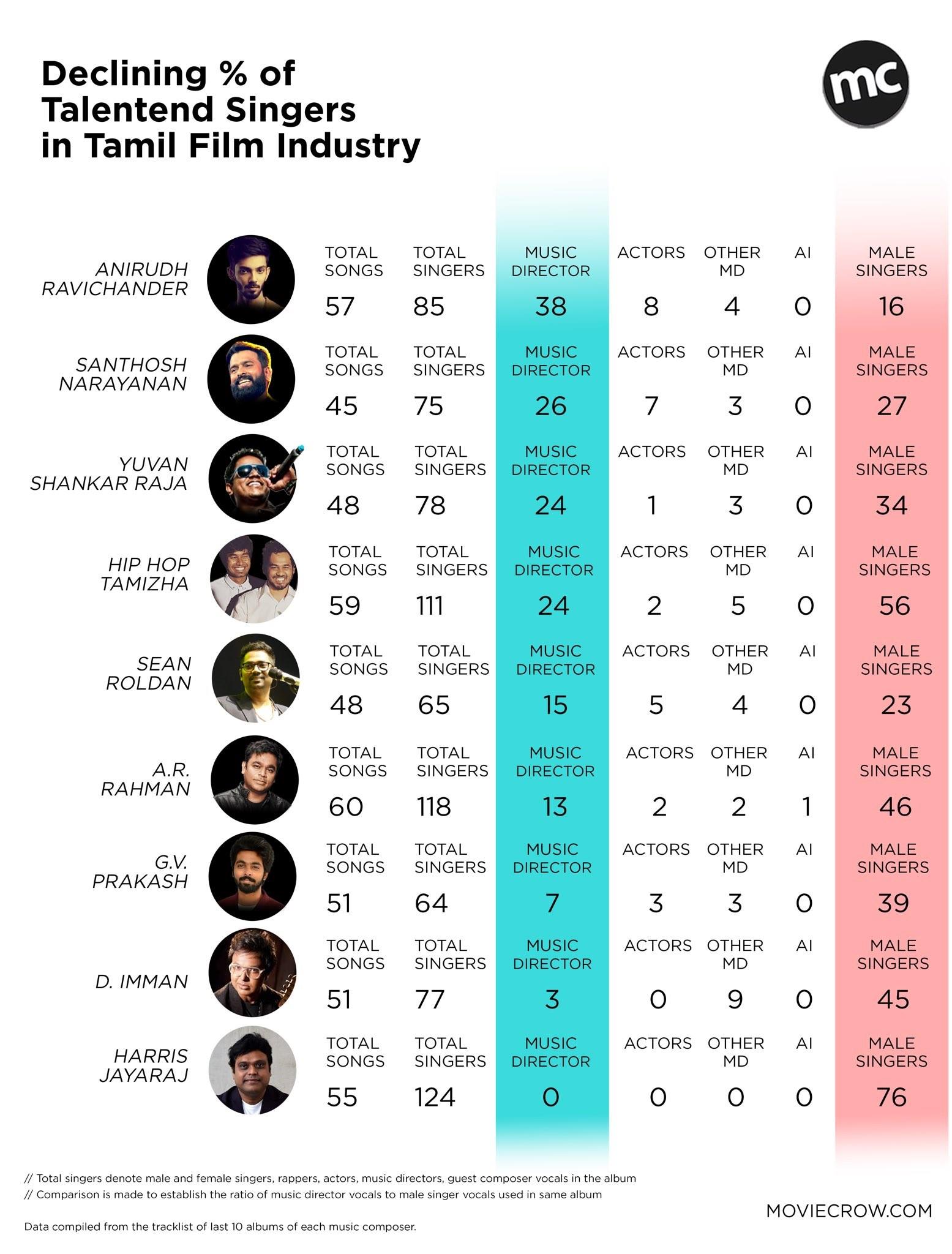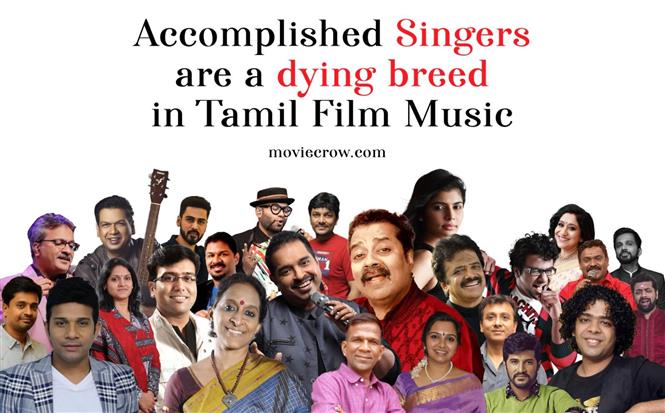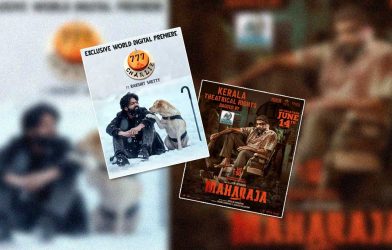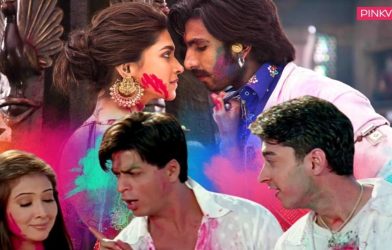Tamil film industry which once witnessed a wide range of talented singers from Hariharan, Karthik, KS Chithra, Anuradha Sriram, Kavitha Krishnamurthy, Krish, Bombay Jayashri, Haricharan, Sakthisree Gopalan, Vijay Yesudas, Mahathi, Vijay Prakash, Harini, Tippu, Naresh Iyer, Vasundhara Das, Shankar Mahadevan, Sujatha Mohan, Swetha Mohan, Benny Dayal, Unni Krishnan, Unni Menon, Harish Ragavendra, Chinmayi and more singers are evidently almost wiped out in Tamil music scene. While this is not gender-specific, male-singers face the highest degree of extinction as music directors, and actors have now taken their job.
This has also long been in the works, and not an overnight scenario. However the changes definitely seem more on the face now, than say a few years ago. Evolutions in the Tamil music industry and film industry aside, it is definitely a preference today to not use pure playback singers in movie songs. In the last one year alone, a significant percentage of songs have been sung by the lead actors or music directors themselves and not by accomplished singers.
Analyzing the last 10 albums of popular Tamil film composers like Anirudh Ravichander, AR Rahman, GV Prakash, Santhosh Narayanan, Yuvan Shankar Raja, D. Imman, Sean Roldan, Hiphop Tamizha, Harris Jayaraj among others, we realized that statistically, the share of songs sung by the music directors themselves is almost equal to those sung by professional singers. Even when choosing professional singers, music directors tend to rotate the same few artists, which dilutes the variety of vocals in the music space. The new gen crop of composers seem more inclined to this pattern, but the generation previous is not too far from this trend either.

While this is completely within the discretion of the stakeholders (music composers and filmmakers) as to whom they want as the voice of a song, the void of not being able to hear nostalgic voices or even new talents that much is what has made MovieCrow dig into why this scenario has changed to this drastic extent.
1. Royalty & Other Legalities
Film music is one of the main areas where the Tamil music industry thrives. Even after being in existence for 93 years now [Kalidas (1931) was the first Tamil movie to have released with sound which included 50 songs by Bhaskara Das], the stakeholders i.e. filmmakers, music composers, lyricists and playback singers are only about paying attention to factors like authorship, master ownership, royalty sharing and such in the last 10-12 years.
The Indian Copyright Act, 1957 and its 2012 Amendment which declares and divides the rights and royalties, is an elephant that is no longer ignored in the room. This means that a music composer working in the Tamil film industry, who by default is entitled to 50% of royalty sharing with lyricists and playback singers [the remaining 50% goes to either the music label or the film producer], gets a bigger percentage if they are both the composer and voice of the music they compose.
Since the voice behind a song also has performer’s rights under Section 38 of The Copyright Act, 1957, the composers would not have to face any legal issues in terms of performing film music at their individual concerts.
In a nutshell, music composers who sing their own songs broaden their revenue, and lessen legal impediments.
2. Cost Control
When Tamil music composers work on a film album, they are assigned a fixed sum by the movie producers which acts as the composer’s remuneration. Accomplished singers in the league of the names mentioned above charge upto 10% of this cost, and that is just per head.
Utilizing their own voice or a free factor which also boosts the commercial aspect of the song [eg: a lead actor like Vijay, Dhanush or Sivakarthikeyan singing brings more attention to the song, and in turn the movie, at no extra cost], is a choice leaned towards these days.
3. Film Music – A Dying Art?
The landscape of Tamil film music is not what it used to be before. Songs have gone from being an integral part of a Tamil movie’s story to now being a background or marketing accessory. This has drastically reduced the scope for music composers to experiment and create art with.
Except for say a Ponniyin Selvan-I (AR Rahman) in recent times, no Tamil film has been able to put out an album of variant songs, where playback singers were also able to make a mark. The scenario otherwise is either albums with just 2-3 songs and theme music for the rest of the tracks, or playback singing sounding the same with limited set of repetitive voices, or playback singing not registering at all due to lesser parts or lines.
This aside, composers like A.R.Rahman have introduced the concept of recreating nostalgic voices using AI (Artificial Intelligence) in actual song productions. Rahman may have done it for the benefit of surviving families/the estate of late singers like Bamba Bakya and Shahul Hameed, but the process itself opens up different possibilities, some of which include the AI tech replacing singers, voices being recreated without permission, AI songs becoming the new remixes, among other unprecedented scenarios.
In 2024, Indian 2, an album with brand names like Shankar and Anirudh Ravichander behind it, was expected to upkeep the legacy of this dying film music art. Except all it did was disappoint by having Anirudh sing most of the songs, despite the scope of the album.
When a Shankar who is known for extracting the best out of his music composers, or an Anirudh who is part for upkeeping the dying legacy of film albums and playback singing in movies, contribute to the opposite, it only sets a precedence that playback singing, at least male, is no longer a career option in the Tamil film industry.









